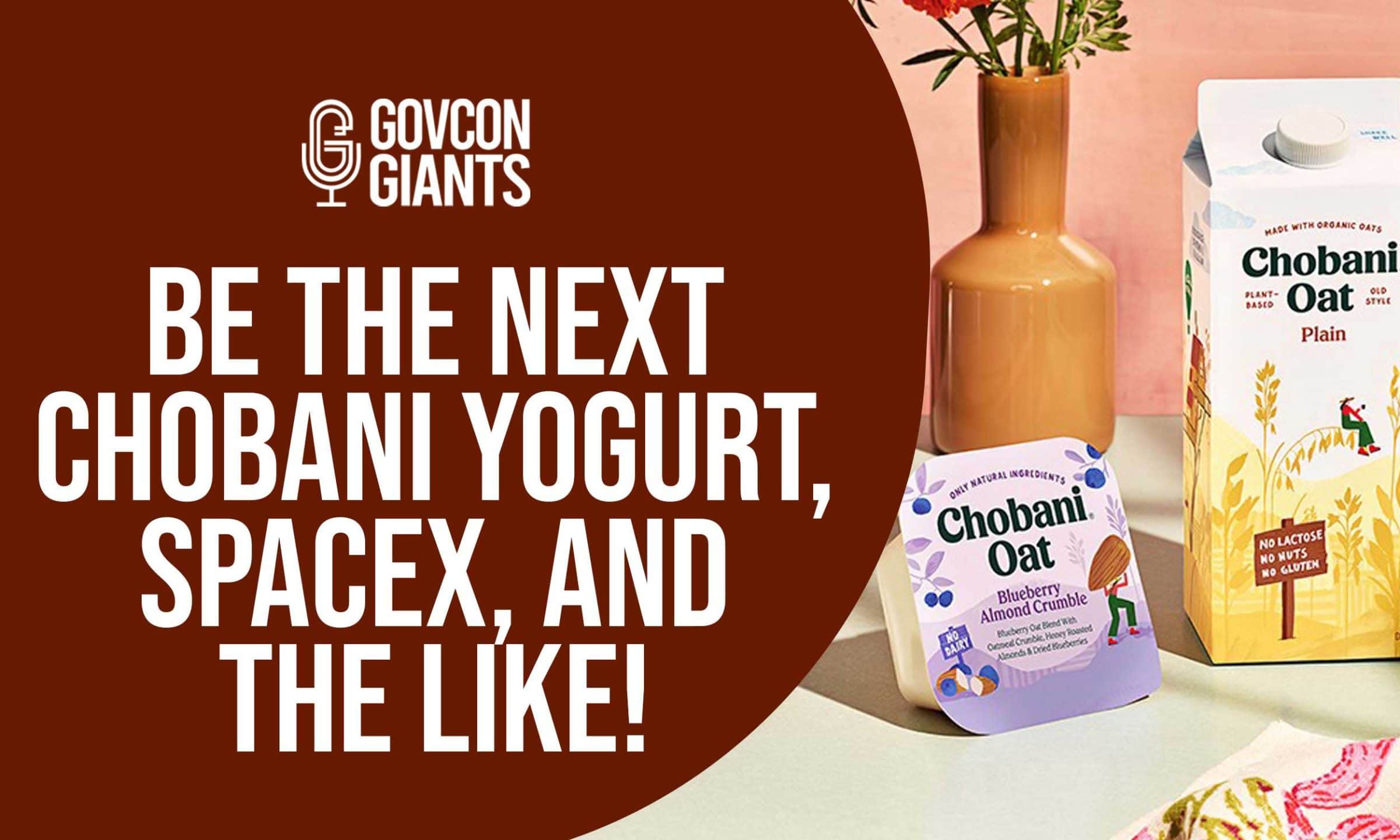The US government is taking a chance on people like you to be the next Chobani Yogurt, SpaceX, and the like!
CHOBANI YOGURT AND HAMDI ULUKAYA
Hamdi Ulukaya came from a family who raised goats and sheep and made cheese and yogurt in a small Kurdish village in Turkey.
However, after getting in trouble with the Turkish authorities for writing articles sympathetic to the Kurdish rights movement, he was hauled in for questioning. So, he decided that it might be a good idea to leave.
Ulukaya, then, arrived in the United States in 1994 with only $3,000 in his pocket, speaking no English and no family or friends. Still, over the next decade, he finished his studies, worked on a dairy farm, and started a modest feta cheese business.
Then, he continued to gain success when he spotted an advertisement with the statement, “Fully equipped yogurt plant for sale,” on it. The yogurt plant was owned by Kraft foods which decided to get out of the yogurt business.
With no money, he managed to get a regional bank and the Small Business Administration to split the risk of a million-dollar loan to pay the $700,000 price for the plant. This helped him to put Chobani in business and to also hire his first five employees, four of whom had been let go by Kraft.
Today, Ulukaya is a billionaire and Chobani is carried by every grocer in the US, providing not just yogurt but also other products.
“If you’re right with your people, if you’re right with your community, if you’re right with your product, you’ll be more profitable, more innovative, and you will have more passionate people working for you and a community that supports you.”
SPACEX AND ELON MUSK
Elon Musk was born in Pretoria, Transvaal, South Africa to a Canadian mother and a South African father. And to avoid the mandatory service in the South African military, he moved to Canada.
Then, from Canada, he migrated to the United States to study business and physics in the University of Pennsylvania. Shortly thereafter, he went to Stanford University in California to pursue a PhD in energy physics.
However, he dropped out and started Zip2 Corporation, an internet startup that he created with his brother. It was later purchased by Compaq for $307 million.
Then, in 1999, he also co-founded X.com, which through acquisition led to the creation of PayPal. In 2002, it was acquired by eBay for $1.5 billion, which Musk owned 11 percent at that time.
Using his fortune, Musk then founded SpaceX in 2002, with the intention of building spacecraft for commercial space travel. He also created Tesla Motors, a company dedicated in producing affordable, mass-market electric cars. However, both companies were taking unsustainable losses. The Tesla cars were not performing and SpaceX had two failed rocket launches.
Musk was down to his last $20 million in personal fortune when he decided to invest everything into his companies. In 2008, SpaceX successfully sent its first rocket into Space and NASA awarded the company it’s first ever contract to handle cargo transport for the International Space Station.
That contract single-handedly revitalized SpaceX, providing the cash flow it needed to keep the doors open and get back on track. Subsequently, with an influx in cash, the company was able to resolve funding issues at Tesla.
Currently, Elon Musk is the world’s richest person with his net worth crossing $185 billion, taking the spot of the Amazon founder, Jeff Bezos.
“There have to be reasons that you get up in the morning and you want to live. Why do you want to live? What’s the point? What inspires you? What do you love about the future? If the future does not include being out there among the stars and being a multi-planet species, I find that incredibly depressing.”
THE NEXT PERSON COULD BE YOU!
Today, both companies are multi-billion firms and household names. Hamdi Ulukaya is an inspiration for US immigrants and Elon Musk is a multi-billionaire, both heroes to the modern day entrepreneur.
So, what do Chobani, SpaceX, and many other companies have in common? They were all created, saved, or subsidized by the federal government and U.S. taxpayers.
Our U.S. federal government, for all its criticisms, is helping create new industries and markets through its support to new and emerging entrepreneurs. They are taking a chance on people and companies with little to no track record. You don’t have to be Chobani or SpaceX; you just have to be an Elon and a Hamdi.
So, at this moment, stay and continue on your quest. Be diligent and work the system.
Remember, the U.S. financial system rewards people who are doers; they will put all their expertise and resources behind your company, your brand, and your idea.
